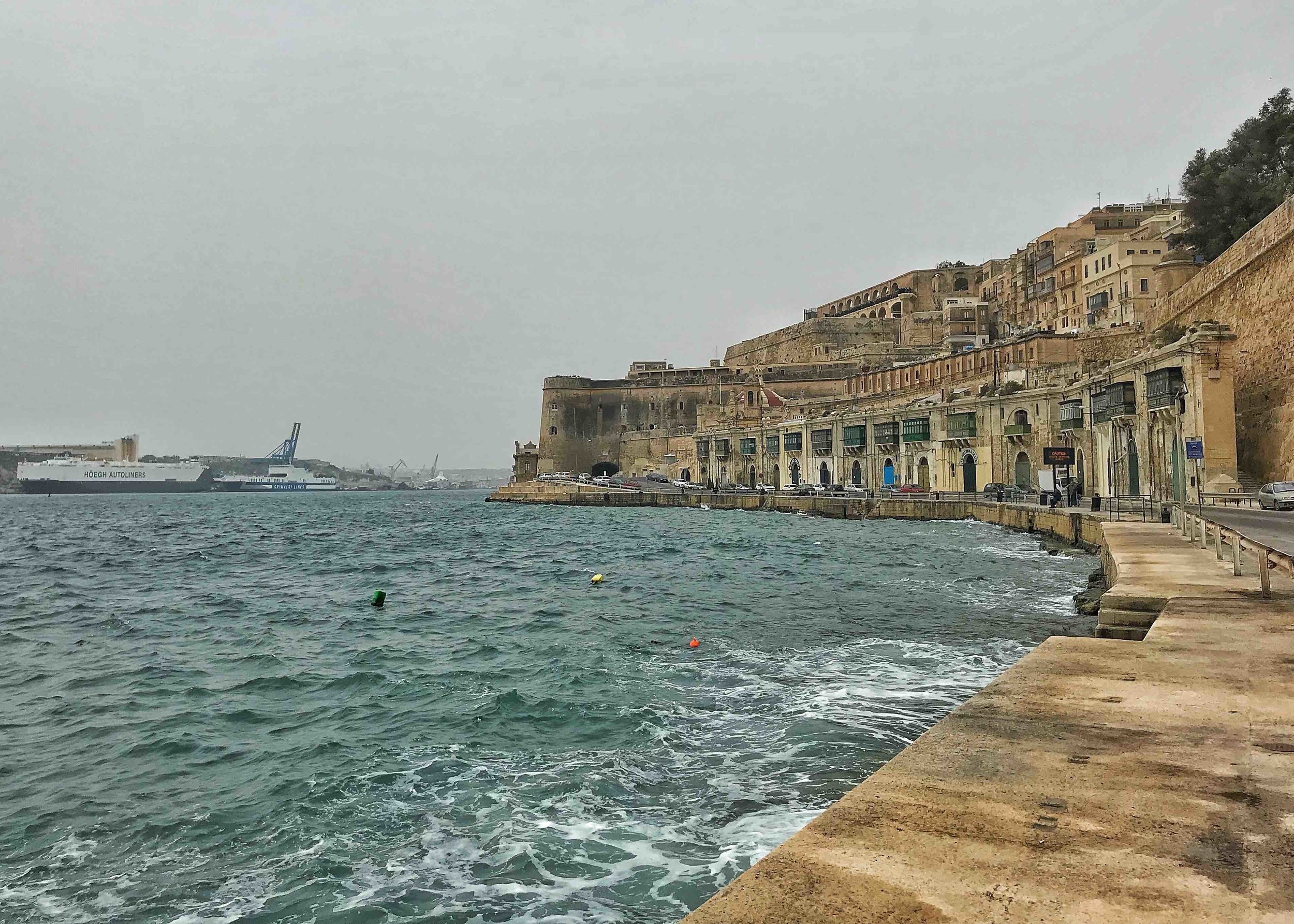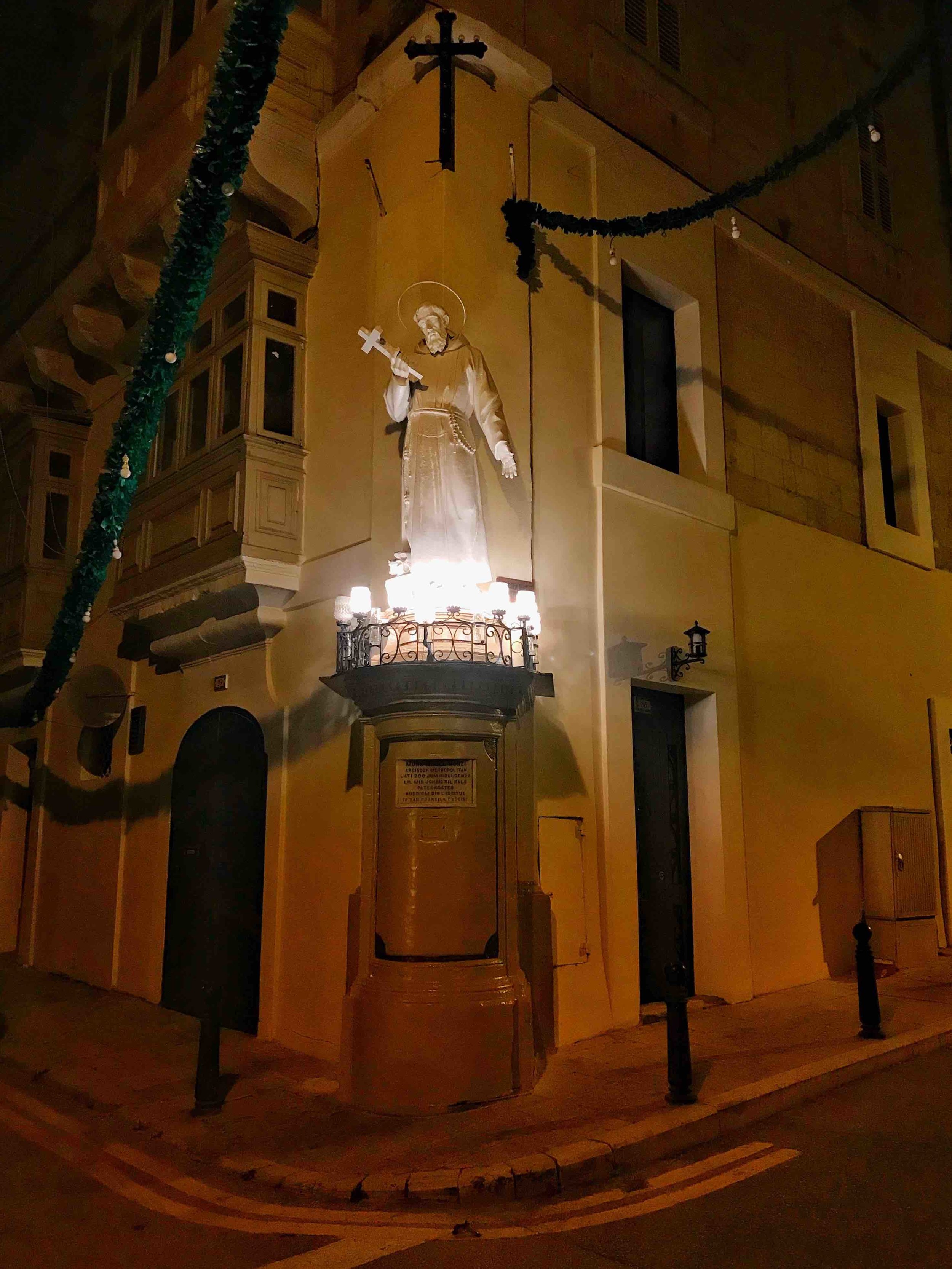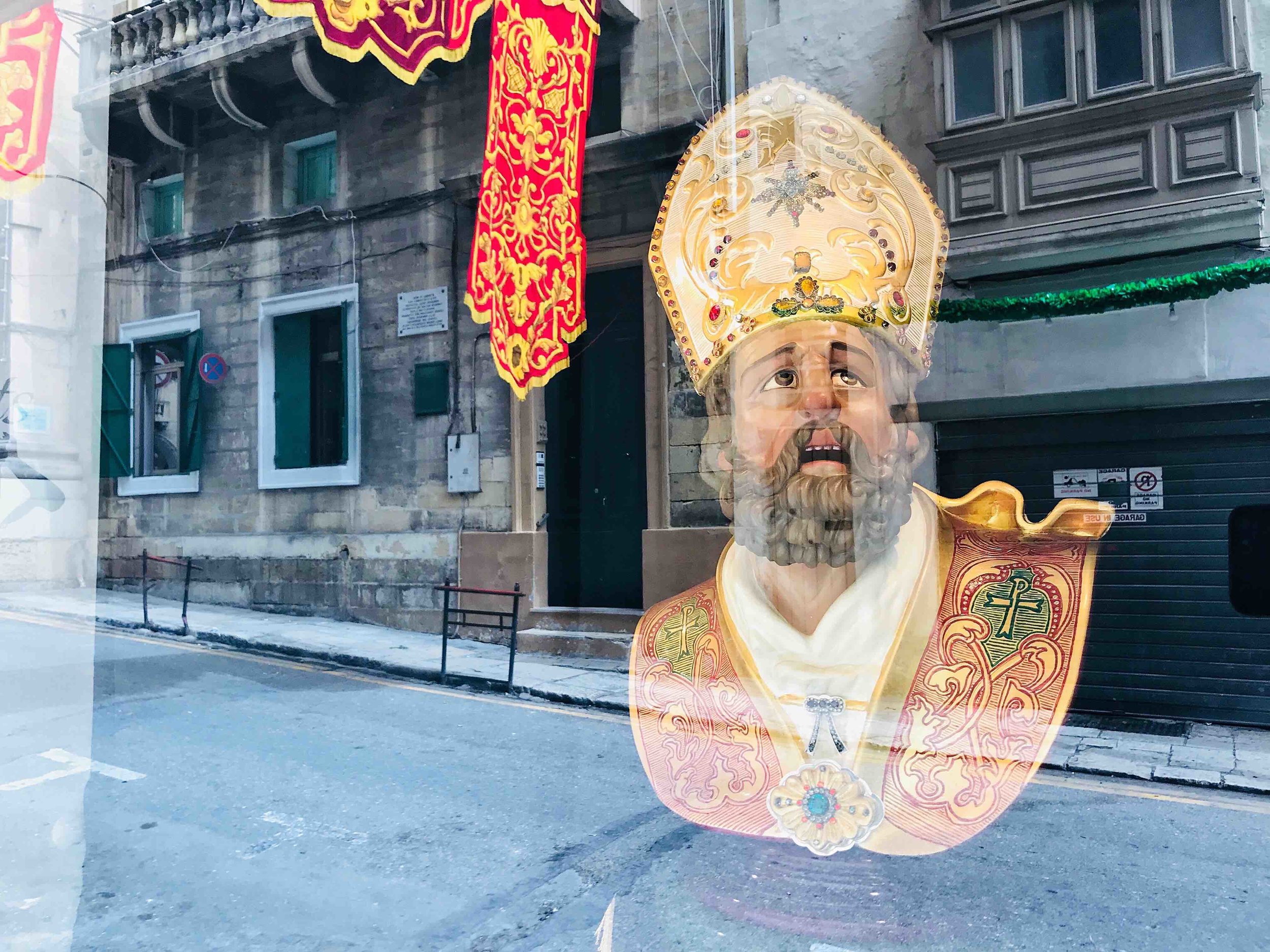I recently attended a conference in Malta, a marvelous island country smack in the middle of the Mediterranean, not far from Sicily and not far from the coast of North Africa. Because of its strategic importance, over the millennia Malta has known war, strife, occupation, depredations and glories galore.
Malta is very beautiful, thought-provoking and sensation-inducing.
Heading out one night to a concert by one of the conference’s participants, I had a little spare time and decided to enter the Church of St. Publius, the patron saint of Floriana, a town adjacent to the capital Valletta. Publius is a big deal; according to tradition, he received Paul (the apostle) when the latter survived a shipwreck in Malta roughly two thousand years ago.
The Church of St. Publius was built in stages over several centuries. What, exactly, is its style? I think that’s the wrong question. A better one is, “How do you feel when you enter the church? Where are you? What’s going on? What are they saying? What’s it all about?”
The church was nearly full, most people in the congregation dressed for a sober occasion. A priest said Mass. Maltese is a strange and fascinating language. Derived from Siculo-Arabic, a now-dead form of Arabic spoken in Sicily a thousand years ago, Maltese is unique among languages; simplifying it, we'll call it a Latinized Semitic language. If you speak Italian, you’ll recognize words in Maltese; if you speak Arabic, you’ll also recognize words in Maltese; if you speak English, you’ll have a head trip and enjoy the swing of an incomprehensible language. Listening to Maltese is like having a dream where someone is telling you something important concerning your future. You’re desperately trying to understand it all, and at the same time you feel as if you’re unworthy of being told the secret of life.
I recorded a little snippet from the Mass. I added a few photos from the church interiors. For good measure, I added background bells that I recorded at a different church (there are many churches in Malta!).
Listening to Mass in Maltese, in a church built over several centuries and bedecked in extravagant finery, I was transported to the “Land of Non-understanding,” or as we say in Maltese, “Art ta ‘nuqqas ta’ fehim.” I mean, I didn’t have any idea what the priest was talking about; and I also didn’t have a good idea as to what all the art works and decorations in the church represented; and I also didn’t know what was happening, socially and culturally and historically, within the congregation.
I grew up with Catholicism in Brazil, though it didn’t really “take.” My catechism teacher once told my mother, with a heavy heart, “Pedro could become a Protestant pastor one day.” (I was ten years old.) But that’s a whole other story; this one is about understanding and not understanding, and let’s say that my background in Brazil half a century ago may have helped or hindered my understanding of what was happening at the Church of St. Publius in Floriana, Malta, in April, 2018.
My theory is that most of the time and in most places, most of us don’t truly understand what’s going on. Or, rather, we have our own subjective understanding of what we see, read, and hear; and by “subjective” I mean “filtered, biased, wobbly, unreliable, incoherent, potentially destructive, potentially constructive.” And I think this is inevitable, for the simple reason that we’re human. My suggestion is that we accept and embrace the reality of not understanding reality.
This is as true of a Brazilian attending Mass in Maltese as it is of the same Brazilian listening to his wife, whom he’s known for more than twenty years and whom he loves dearly. Yes, my wife speaks Maltese to me! And I to her, though we speak mutually incomprehensible versions of Maltese, and both versions are called “English.” How confusing is that?
Thinking processes, deeply infused with sensations and emotions, are authentically subjective. Understanding is necessarily subjective, emotive, and “sensational,” to mis-employ a word. How much of Malta did I really understand? Its streets are crowded with icons, statues big and small, banners, and all sorts of religiabilia. (Made-up vocabulary enhances mis-understandability, although common words are just as easy to mis-use and mis-understand.) Do I really understand how the Maltese celebrate the Divine? Are they even celebrating the Divine? What, exactly, is the Divine?
It’s foolish to make assumptions about anything, and it’s very foolish to make assumptions about how much you understand the Other, and how much the Other understands you. Understanding is a dog with three heads and five tails. Don't let it bite you!
I had a wonderful time in Malta, a wonderful time interacting with my colleagues at the conference, and a wonderful time expressing myself verbally and otherwise in front of a hundred puzzled listeners. We mis-understood one another perfectly.
Google Translate has a sense of humor.
©2018, Pedro de Alcantara




















